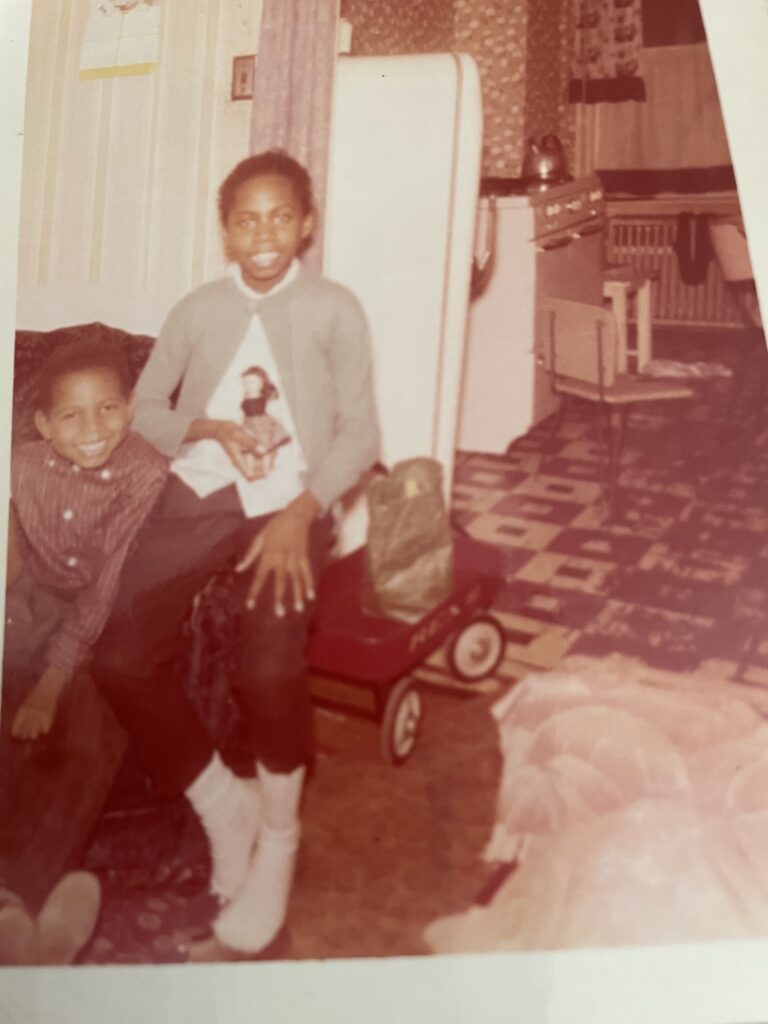
On September 29, 2015, one day after her 68th birthday, my oldest sister died. She had had a stroke but that is not what killed her. She survived the stroke, not without some brain damage and paralysis. But when she was hospitalized for the stroke, it was revealed that she had terminal pancreatic cancer. She had been getting treated for this for about year but did not let anyone know. My mother was devastated when she learned this, not only because she knew my sister’s death was only a matter of weeks, but also because of how much my sister must have suffered during this time without having help or comfort. My mother never recovered from my sister’s death, not really, and died herself less than three years later. The last intelligible word my mother said as she lay dying in the hospital was “Kissy,” my sister’s nickname.
My sister owned the John Coltrane House in Philadelphia and her hope, before she was laid low by illness, was to transform it into a historic home that would attract visitors and jazz performers. I felt bad that she was unable to achieve this. It meant a lot to her. When I visited her during her final weeks, she would speak to me incoherently of the Coltrane House, imagining that she would eventually leave the hospital, leave rehab, and continue with the project. She would ask me to help her write a book about Coltrane and the history of the house. I would agree, of course.
I was close to my sister when I was in my late teens and early twenties. I lived with her for a time in San Francisco, used to visit her regularly when she lived in Great Neck, New York, and I was a student at U of Penn. She taught me many things because she was smart, wise, even. We drifted apart for many years but had sort of come back together with the Coltrane House. I was glad of that.
At other times during her last days, she would be aware that she was dying and would sob to my mother. Why me? How can I die now? Who will take care of my special needs daughter? My mother did not know what to say. What can you say? You cannot help the person. You cannot even comfort the person. You cannot say, “I know how you feel” because you do not. You cannot say, “Heaven awaits with all its glories.” The dying person does not want heaven but all the imperfections of this unhappy realm. An earth in hand is worth a thousand heavens in the bush. You can only know what the person is feeling if you are dying yourself. Death is a lonesome thing, no matter how many people are around. The dying person is losing really the only thing he or she ever really had that meant something, a life. I was always glad I saw her at better times, when you could almost believe she was not going to die.
My sister’s death reminds me that life is about loss, learning to accept losing without rancor, without pity. I think that is what the blues are about, a persecuted people creating an art form about losing, the austere sublimity of losing, first slowly, then faster.
Going through a box of old photographs the other day, I found this old picture of the two of us taken when we were children. I was about four or five and she was about nine. We were living in a cold-water apartment at 914 East Passyunk Avenue in Philadelphia. There are few photos of me and my sisters from our childhood. A color photo is particularly rare. I was surprised to see it. I had not seen it in a long time. They say that when someone close to you dies you should think of happy times together. My childhood was happy. I think she was happy then too. But when I saw this photo all I could think of was that Chester Himes was right: Yesterday will make you cry.
